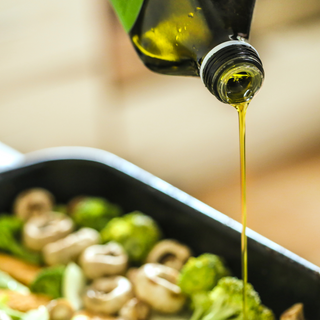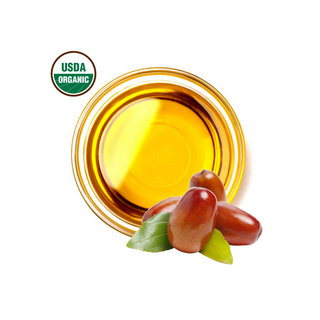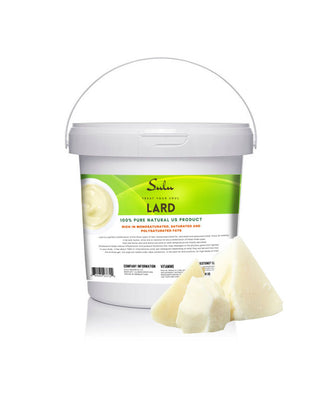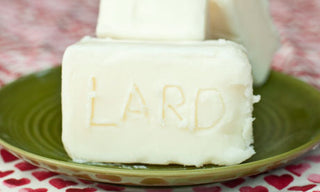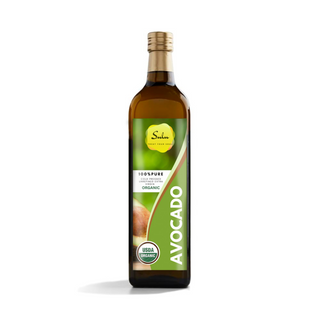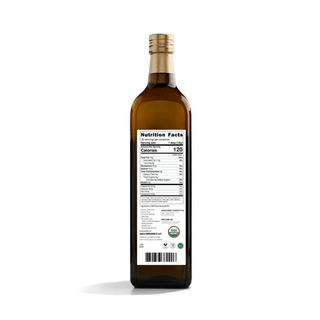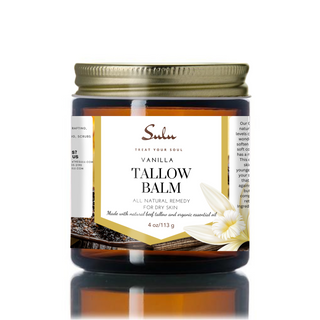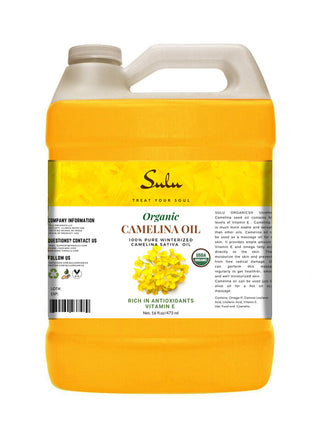Wholesale Discount
Get a 25% wholesale discount for orders over $500 . Discount applied automatically at checkout.
-
Botanical Name: Simmondsia chinensis Oil
CAS Number: 90045-98-0
EINECS number: 289-964-3
Use: Cosmetics and Skin Care
Product code: SL90233
Part Used: Seeds
Extraction Method : Cold Pressed
Physical Appearance: Deep Golden1. Moisturizes Skin
Our sebaceous glands are microscopic glands in our skin that secrete an oily or waxy matter called sebum. The texture and use of sebum is very similar to jojoba oil, so as we age our sebaceous glands produce less sebum, which is why we get dry skin and hair — it can even lead to dandruff or itchy scalp.
A jojoba oil benefit is that it plays the role of sebum and moisturizes our skin and hair when our body stops doing it naturally. On the other hand, too much sebum, which happens during puberty or when hormone levels are high, can result in oily skin and acne. Jojoba oil removes sticky buildup or excess oil, too; it keeps your oil levels balanced. That makes it a strong natural treatment for eczema as well as home remedy for acne, plus well suited for other dry-skin conditions.
Jojoba oil is an emollient — meaning it moisturizes our skin and prevents irritations, or scaly and rough patches. Dry skin is caused by a loss of water in the upper layer of the skin. Jojoba oil works by forming an oily layer on the top of the skin that traps water in the skin. It works on your face, neck, hands, feet and hair; you can use it anywhere on your body because it’s completely natural and contains no chemicals that lead to an allergic reaction.
2. Removes Makeup Safely
It’s perfectly safe to use jojoba oil on your face; in fact, it’s good for your skin. Instead of using makeup removers that contain chemicals, jojoba oil is a natural tool that removes the dirt, makeup and bacteria from your face as you use it. It’s even safe for cleaning eye makeup, and it’s hypoallergenic.
3. Prevents Razor Burn
You don’t have to use shaving cream anymore; instead, jojoba oil’s waxy texture eliminates the threat of shaving incidents like cuts and razor burn. Plus, unlike some shaving creams that contain chemicals that clog your pores, jojoba oil is 100 percent natural and promotes healthy skin. Try applying jojoba oil before you shave so it creates a smooth surface for shaving, and then apply it after you shave to moisturize your skin and heal cuts quickly.
4. Promotes Skin Health
Jojoba oil is noncomedogenic, meaning it doesn’t clog pores. Although it’s an oil — and we usually think that oil that sits on our skin is what causes breakouts — jojoba oil works as a protectant and cleanser. Jojoba oil is rich iodine, which fights harmful bacteria growth that leads to breakouts. The antioxidants present in jojoba oil soothe fine lines, wrinkles and naturally slow down other signs of aging.
Jojoba oil can also accelerate the wound-healing process, as indicated in a study done at the Department of Environment and Life Sciences in Italy. The results proved that jojoba oil speeds up wound closures and stimulates collagen synthesis; the study also noted that jojoba oil had extremely low toxic effects when used on the skin.
A 2012 study conducted in Germany examined jojoba oil’s ability to reduce skin lesions and improve overall skin condition for 194 participants, who applied clay masks with jojoba oil to their faces two to three times per week; 54 percent of the participants reported that skin lesions were reduced significantly after six weeks of using jojoba oil.
Botanical Name: Simmondsia chinensis Oil
CAS Number: 90045-98-0
EINECS number: 289-964-3
Use: Cosmetics and Skin Care
Product code: SL90233
Part Used: Seeds
Extraction Method : Cold Pressed
Physical Appearance: Deep Golden
1. Moisturizes Skin
Our sebaceous glands are microscopic glands in our skin that secrete an oily or waxy matter called sebum. The texture and use of sebum is very similar to jojoba oil, so as we age our sebaceous glands produce less sebum, which is why we get dry skin and hair — it can even lead to dandruff or itchy scalp.
A jojoba oil benefit is that it plays the role of sebum and moisturizes our skin and hair when our body stops doing it naturally. On the other hand, too much sebum, which happens during puberty or when hormone levels are high, can result in oily skin and acne. Jojoba oil removes sticky buildup or excess oil, too; it keeps your oil levels balanced. That makes it a strong natural treatment for eczema as well as home remedy for acne, plus well suited for other dry-skin conditions.
Jojoba oil is an emollient — meaning it moisturizes our skin and prevents irritations, or scaly and rough patches. Dry skin is caused by a loss of water in the upper layer of the skin. Jojoba oil works by forming an oily layer on the top of the skin that traps water in the skin. It works on your face, neck, hands, feet and hair; you can use it anywhere on your body because it’s completely natural and contains no chemicals that lead to an allergic reaction.
2. Removes Makeup Safely
It’s perfectly safe to use jojoba oil on your face; in fact, it’s good for your skin. Instead of using makeup removers that contain chemicals, jojoba oil is a natural tool that removes the dirt, makeup and bacteria from your face as you use it. It’s even safe for cleaning eye makeup, and it’s hypoallergenic.
3. Prevents Razor Burn
You don’t have to use shaving cream anymore; instead, jojoba oil’s waxy texture eliminates the threat of shaving incidents like cuts and razor burn. Plus, unlike some shaving creams that contain chemicals that clog your pores, jojoba oil is 100 percent natural and promotes healthy skin. Try applying jojoba oil before you shave so it creates a smooth surface for shaving, and then apply it after you shave to moisturize your skin and heal cuts quickly.
4. Promotes Skin Health
Jojoba oil is noncomedogenic, meaning it doesn’t clog pores. Although it’s an oil — and we usually think that oil that sits on our skin is what causes breakouts — jojoba oil works as a protectant and cleanser. Jojoba oil is rich iodine, which fights harmful bacteria growth that leads to breakouts. The antioxidants present in jojoba oil soothe fine lines, wrinkles and naturally slow down other signs of aging.
Jojoba oil can also accelerate the wound-healing process, as indicated in a study done at the Department of Environment and Life Sciences in Italy. The results proved that jojoba oil speeds up wound closures and stimulates collagen synthesis; the study also noted that jojoba oil had extremely low toxic effects when used on the skin.
A 2012 study conducted in Germany examined jojoba oil’s ability to reduce skin lesions and improve overall skin condition for 194 participants, who applied clay masks with jojoba oil to their faces two to three times per week; 54 percent of the participants reported that skin lesions were reduced significantly after six weeks of using jojoba oil.
Read Reviews
New content loaded
